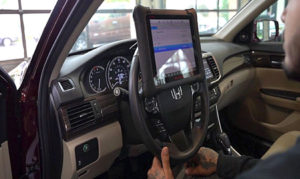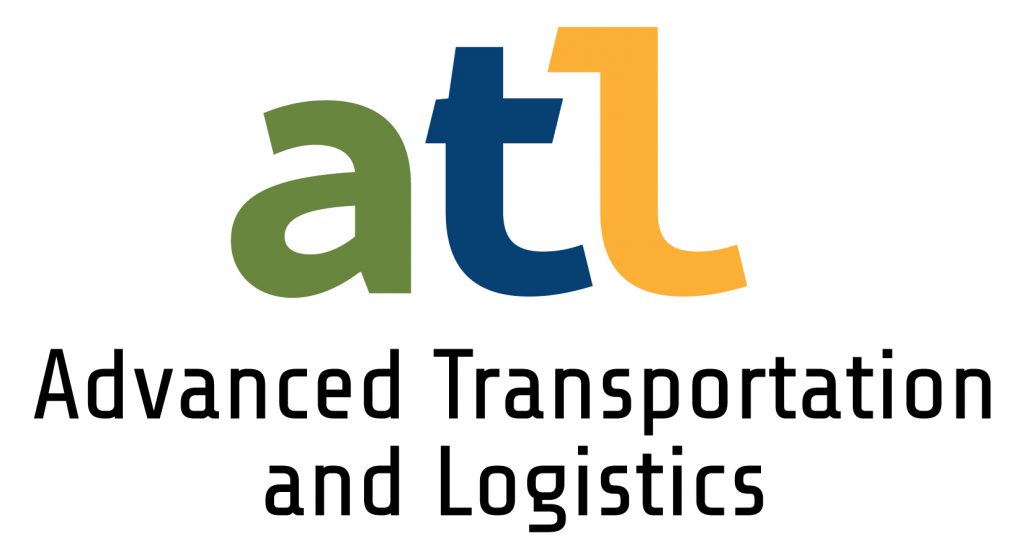 Features like blind-spot detection and parking assist have quickly been added to the list of standard features on new vehicles over the past decade or so.
Features like blind-spot detection and parking assist have quickly been added to the list of standard features on new vehicles over the past decade or so.
Given the rate of change, these systems were not part of the curriculum in automotive technology programs, which left students at a disadvantage when they entered the workforce.
Pamela Gutman, ATL Regional Director in the Bay Area, is hoping to change that with a new curriculum focusing specifically on Advanced Driver Assistance Systems (ADAS). She helped develop the curriculum and has started offering training sessions for faculty in her region.
Gutman said the need for the curriculum came from faculty, who said they did not have the skills or the equipment to teach ADAS in their courses.
“Three years ago, I noticed that these systems were not being addressed in the Bay Area auto programs,” Gutman said. “During a regional training meeting that I was facilitating with faculty, they confirmed that they did not have the training in these semi-autonomous/advanced electrical technologies.”
The need for change was supported by industry partners in the region, who told Gutman at a recent meeting that colleges teaching 1980s technology and programs would lose their relevance if they did not catch up to current industry standards.
Gutman took that feedback and developed NextGen Auto Tech, a Regional Joint Venture with Strong Workforce funding.
“The focus of this current RJV is to expose and train Bay area auto faculty in these new technologies, develop new curriculum for students and pilot these classes and modules,” Gutman said.
 Gutman worked with Kurt Shadbolt and Mike Sherburne, auto faculty at Chabot College, Nick Rothman, Auto Chair at City College of San Francisco, and Steve Zack from Bosch to develop the curriculum and create necessary training materials and resources. Shadbolt introduced the ADAS curriculum to faculty at the August 2019 ATL Mobilize Summit at Temecula. Following that briefing session, Shadbolt and Sherburne led a train-the-trainer session for 40 faculty in September 2019. Additional training sessions were planned for the spring but had to be restructured online due to COVID-19. Shadbolt previewed the online ADAS curriculum during a webinar on April 28. Going forward, the online ADAS training will be made available to both college and high school auto faculty on Friday afternoons, starting June 2020.
Gutman worked with Kurt Shadbolt and Mike Sherburne, auto faculty at Chabot College, Nick Rothman, Auto Chair at City College of San Francisco, and Steve Zack from Bosch to develop the curriculum and create necessary training materials and resources. Shadbolt introduced the ADAS curriculum to faculty at the August 2019 ATL Mobilize Summit at Temecula. Following that briefing session, Shadbolt and Sherburne led a train-the-trainer session for 40 faculty in September 2019. Additional training sessions were planned for the spring but had to be restructured online due to COVID-19. Shadbolt previewed the online ADAS curriculum during a webinar on April 28. Going forward, the online ADAS training will be made available to both college and high school auto faculty on Friday afternoons, starting June 2020.
Funding is available through local SWP funds for colleges to purchase an ADAS-equipped vehicle for use in their labs. These vehicles typically cost $20,000-$25,000 but are important for giving students hands-on experience with the systems they are learning about. ADAS training equipment is also available from Bosch, Snap-On and Autel. Quotes from these suppliers are being circulated to interested programs.
“I am encouraging regional college auto faculty to consider incorporating ADAS into their auto programs either as stand-alone classes and possible certificates or by embedding the modules into existing automotive classes,” Gutman said.
Gutman is also working with Subaru to consider upgrading its vehicles with its nine Bay Area community college partners. She attended the company’s Master Tech training in January, which covered the ADAS systems in its newest vehicles. However, COVID-19 has hit the auto industry very severely, and the downturn more than likely will affect resources for this major partnering investment.
Long-term, she sees the potential for high schools and community colleges to work together on an ADAS dual enrollment program that would expose high school students to these technologies and make it more feasible to obtain an entry-level job while they are attending community college.
“If colleges and high schools collaborate on dual enrollment classes in ADAS, funding can be sought to support these activities,” said Gutman. “However, in the meantime, the online ADAS training sessions will start that process for interested college and high school automotive programs.”


